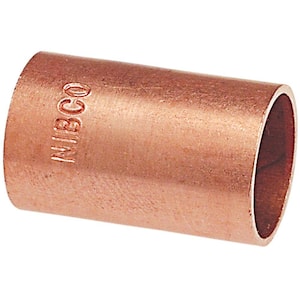How Copper Products Add To Lasting Practices in Different Industries
Copper items are increasingly identified for their significant contributions to sustainable methods throughout several markets, driven by their inherent homes such as recyclability, effectiveness, and longevity. In renewable power systems, for example, copper boosts the performance of solar and wind technologies, while its application in building reduces waste with long life. The product's antimicrobial qualities offer encouraging advantages in health care settings. As industries look for to take on even more sustainable techniques, the duty of copper might prove essential in accomplishing ecological objectives. What effects might this have for future developments in sustainability?
Copper in Renewable Power
Copper plays a vital function in the innovation of renewable resource modern technologies, offering as an important conductor in different applications. Its outstanding electrical conductivity and resistance to corrosion make it an ideal product for electric circuitry, which is essential in photovoltaic panels, wind generators, and power storage space systems. In solar photovoltaic systems, copper is made use of in the affiliations and circuitry, allowing efficient power conversion from sunlight to electrical power.
In wind power, copper is important to the generators and transformers that convert kinetic power into electrical energy, making sure optimum performance and reliability. Additionally, the demand for electric cars (EVs) is increasing, with copper being a vital component in batteries, electric motors, and charging facilities. The transition to EVs considerably enhances the demand for copper, as these automobiles generally use 4 times extra copper than standard inner combustion engine lorries.
As the world seeks to mitigate climate modification and change to sustainable energy sources, copper's duty ends up being increasingly crucial. The product not just improves the performance and longevity of eco-friendly power systems but also sustains the broader goal of decreasing greenhouse gas discharges and advertising a lasting future.
Eco-Friendly Building And Construction Materials
Recently, there has been a noteworthy shift towards the adoption of eco-friendly building and construction materials in action to growing ecological worries. This modification is encouraged by the requirement for sustainable choices that minimize environmental impacts while maintaining structural integrity and aesthetic allure.
Copper, understood for its sturdiness and recyclability, has actually arised as a crucial gamer in this field. It can be used in roof covering, pipes, and electrical systems, adding to energy effectiveness and minimizing waste. Copper's durability means fewer replacements gradually, additional enhancing its sustainability profile.
Additionally, materials such as bamboo, recovered wood, and recycled steel are obtaining popularity. These options not just supply decreased environmental impact however likewise promote source conservation. As building codes significantly emphasize sustainability, home builders and designers are incorporating these products right into their tasks, fostering development in style.
The boosting fostering of environmentally friendly construction materials mirrors a wider dedication to sustainability in the developed atmosphere. By prioritizing these materials, the building sector can dramatically decrease its carbon impact, align with regulatory criteria, and support a healthier community for future generations. This fad notes a crucial action in the direction of an extra lasting future in building and construction.
Copper's Function in Health care
Recent researches have highlighted the significant duty of copper in healthcare setups, specifically due to its antimicrobial residential my review here or commercial properties. Copper surfaces have been shown to lower the visibility of pathogens, including germs and infections, by up to 99.9% within a short period. This remarkable effectiveness makes copper an invaluable product for high-touch surface areas in hospitals, such as doorknobs, bed rails, and IV posts, thus adding to improved infection control measures.
In addition to its straight antimicrobial impacts, copper likewise contributes in the more comprehensive context of hospital sustainability (Copper Products). By incorporating copper into medical tools and furnishings, health care centers can lower the occurrence of healthcare-associated infections (HAIs), which not only improves individual end results however additionally decreases the expenses connected with prolonged health center remains and extra treatments
In addition, copper's toughness and recyclability straighten with sustainable practices, permitting liable resource management. As medical care systems increasingly focus on both individual security and environmental stewardship, the combination of copper items is ending up being much more common. This dual benefit emphasizes copper's vital contribution to a much healthier, more secure, and extra sustainable healthcare atmosphere.
Sustainability in Transportation

Furthermore, copper's longevity and rust resistance add to the longevity of transportation infrastructure (Copper Products). In rail systems, for example, copper elements improve the integrity and effectiveness of signaling and power systems, necessary for minimizing delays and energy intake. Furthermore, copper's duty in renewable resource systems, such as solar and wind, sustains sustainable transportation remedies by providing tidy energy for electrical transportation options
Investments in copper technology not only foster sustainability but also boost financial growth and work creation in eco-friendly fields. As sectors strive to fulfill rigorous ecological laws, the application of copper products in transport becomes an essential technique in accomplishing sustainability objectives and promoting a cleaner, a lot more efficient future.
Copper and Round Economic Situation
As the globe increasingly welcomes sustainability, the duty of copper in the round economic climate ends up being ever more considerable. Copper's innate residential properties-- such as its toughness, recyclability, and conductivity-- placement it as a key material in a resource-efficient economy. The circular economic climate aims to minimize waste and optimize source usage via recycling and reusing products, and copper excels in this respect.
The metal can be recycled forever without loss of high quality, making it an excellent prospect for sustainable practices throughout numerous fields, consisting of construction, electronic devices, and renewable power. By reprocessing and recovering copper from end-of-life products, sectors content can dramatically minimize the requirement for virgin materials, therefore lowering environmental effects connected with mining and handling.
Furthermore, the integration of copper right into round economic climate frameworks not just preserves sources yet additionally fosters advancement. Organizations that focus on copper reusing add to an extra lasting supply chain, boosting their competition while straightening with governing demands and customer preferences for ecologically accountable items.
Conclusion
To conclude, copper products significantly contribute to sustainable techniques across numerous fields. Their vital duty in boosting renewable resource innovations, advertising environment-friendly building products, supporting infection control in healthcare, promoting lasting transport, and symbolizing the principles of a round economic climate underscores the flexibility and relevance of copper. By integrating copper right into various applications, markets can achieve better efficiency, decrease environmental impact, and align with worldwide sustainability objectives, inevitably fostering a more sustainable future.

Copper's excellent conductivity makes it a favored product in electric car (EV) systems, enhancing energy performance and performance. In addition, copper's duty in eco-friendly power systems, such as solar and wind, sustains sustainable transportation solutions by giving clean energy for electrical transportation options.
Their necessary duty in enhancing renewable energy modern technologies, promoting eco-friendly construction materials, supporting infection control in medical care, assisting in lasting transportation, and embodying the concepts of a round economy highlights the convenience and relevance of copper.